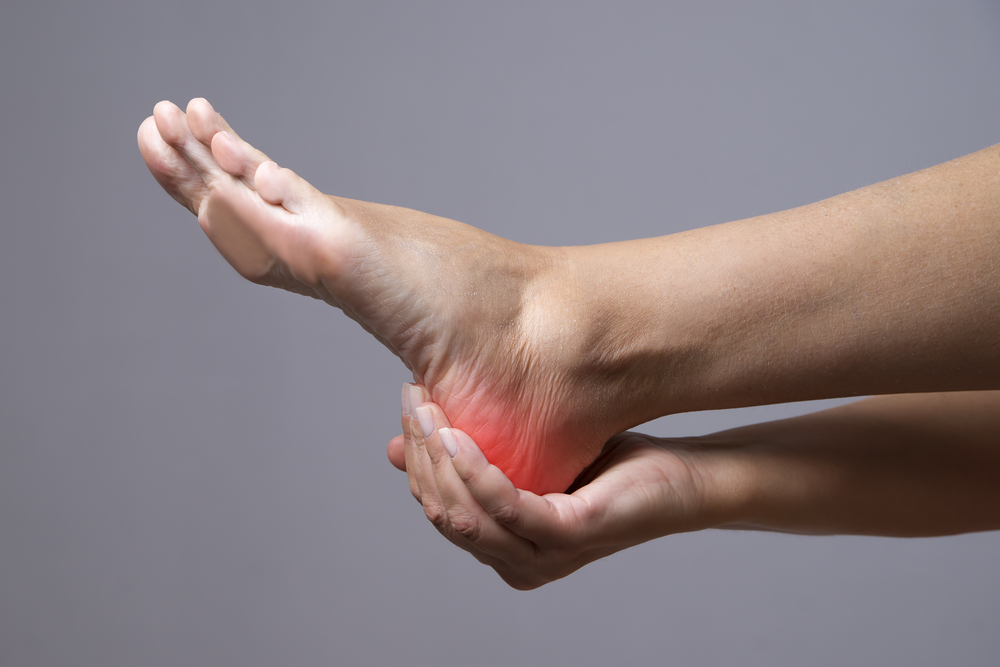Heel Pad Syndrome
The dense fat pad on the sole of your foot (corpus adiposum) is surrounded by muscle fibers that acts as shock absorbers. This helps to distribute your body weight and protect your bones and joints. Changes to the pad, often wear and tear, can cause pain and tenderness in your heels.
Rachel Miller is a highly experienced podiatrist who treats many patients for heel pad syndrome. Please see below if you want more detailed explanation of heel pad syndrome, its symptoms, causes and treatment.
Call 020 8348 5553 to make an appointment
Heal Pad Syndrome
Symptoms of heel pad syndrome
With heel pad syndrome, standing, walking, and other activities can cause pain.
Symptoms can include:
- deep pain in the middle of your heel
- sensation of a bruise at the bottom of your foot
- pain on pressing your finger into the heel of your foot
- tenderness in one or both heels
Causes of heel pad syndrome
As you age, certain stresses and strains can cause damage to your heel pad. It may start to wear thin and lose its elasticity, leading to inflammation and painful symptoms. If you overpronate or underpronate while walking or running, your heel fat pad may become damaged in the areas where your heel strikes the ground. This is common in endurance runners or runners with high arches, and can be exacerbated by training on hard surfaces. Additionally, heel pad syndrome can be caused by an injury.
Treatment of heel pad syndrome
The symptoms are similar to plantar fasciitis and if you have prolonged or painful heel pain you would benefit from seeing an experienced podiatrist to have a biomechanical assessment. This assessment can help to accurately diagnose your condition and give a management plan to treat the disorder.
Treatments can include:
- taping
- icing
- rest allowing your foot to heal
- tailored stretching and strengthening exercises
- medication
- footwear advice
- heel pads
- self-help advice
- an orthotic insole
A bespoke orthotic insole can be prescribed which helps supports and cushion the foot and may reduce pain when walking and running.
Contact the Centre for an appointment on 020 8348 5553
Rachel Miller is a highly experienced podiatrist and a specialist in biomechanics who sees many patients for heel pad syndrome. Her clinic, Highgate Podiatry, is in Highgate Village, 14 Pond Square, N6 6BA, London. Clinics are held every Sunday, Wednesday and Thursday. Please contact the clinic for an appointment on 020 8348 5553. For the clinic’s address, map and directions see the Contact page and for information about orthotic insoles and biomechanics see the Biomechanics page.
Links to Services:
Links to Conditions Treated Include:
- Achilles tendinopathy
- Ankle fractures
- Ankle injuries
- Arthritis
- Back pain
- Bunions
- Corns/Calluses
- Diabetic care
- Flat feet
- Fungal toenail/athlete’s foot
- Haglund’s deformity
- Hammer toe and mallet toe
- Heel pain
- High arches
- Hypermobility
- Ingrown toenail
- In-toeing, toe walking, curly toes
- Knee injuries
- Metatarsalgia
- Morton’s neuroma
- Osgood-Schlatter disease
- Overuse injuries
- Patella tendinopathy
- Patellofemoral pain syndrome
- Plantar fasciitis
- Sever’s disease
- Sprained ankles
- Stress fractures
- Tarsal tunnel syndrome
- Toenails






